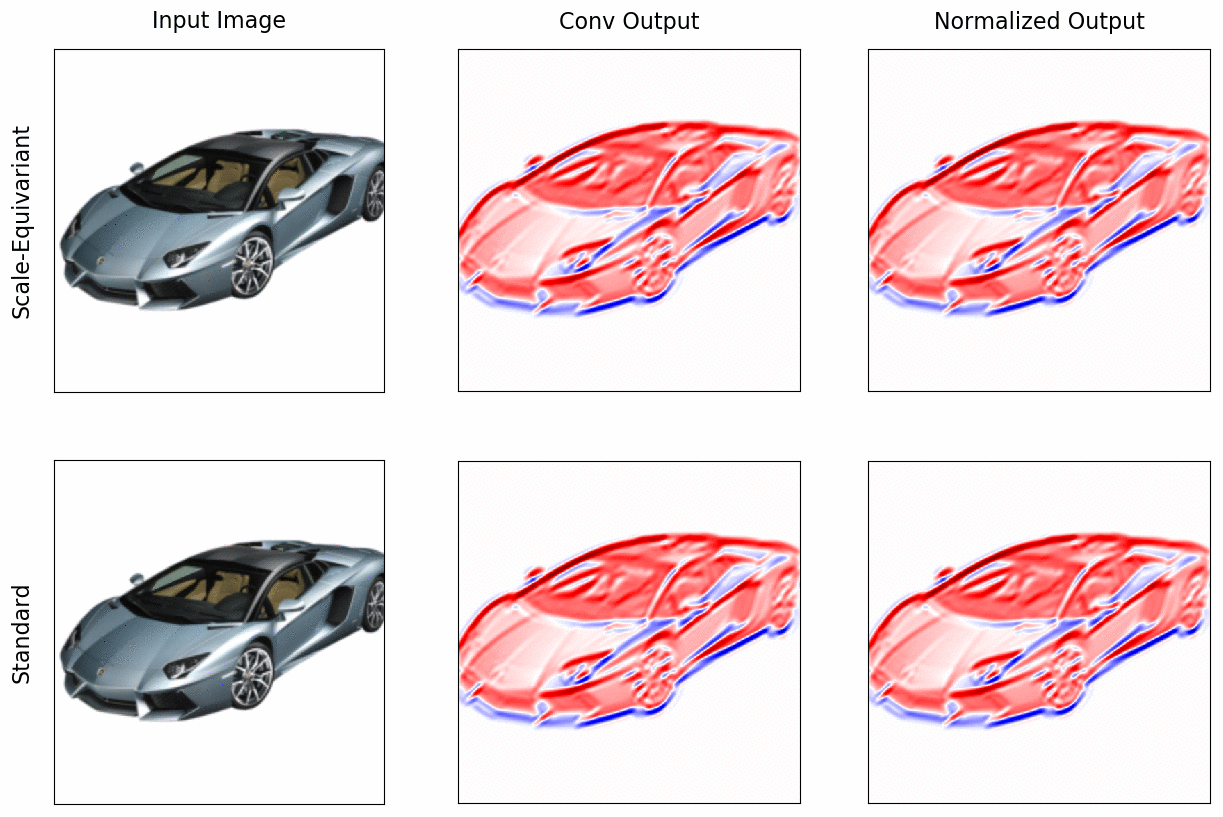Scale-Equivariant Steerable Networks
The effectiveness of Convolutional Neural Networks (CNNs) has been substantially attributed to their built-in property of translation equivariance. However, CNNs do not have embedded mechanisms to handle other types of transformations. In this work, we pay attention to scale changes, which regularly appear in various tasks due to the changing distances between the objects and the camera. First, we introduce the general theory for building scale-equivariant convolutional networks with steerable filters. We develop scale-convolution and generalize other common blocks to be scale-equivariant. We demonstrate the computational efficiency and numerical stability of the proposed method. We compare the proposed models to the previously developed methods for scale equivariance and local scale invariance. We demonstrate state-of-the-art results on MNIST-scale dataset and on STL-10 dataset in the supervised learning setting.
PDF Abstract ICLR 2020 PDF ICLR 2020 Abstract




 MNIST
MNIST
 STL-10
STL-10
